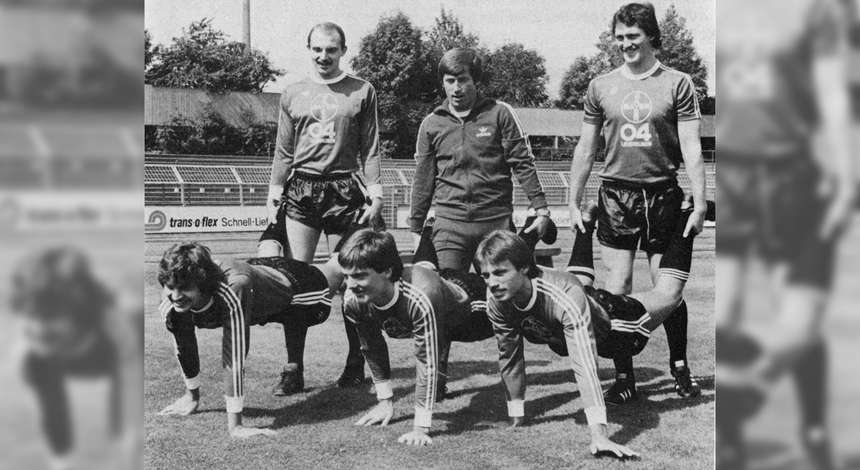
The summer of 1978 sees the arrival of Willi Korth from Schwarz-Weiß Essen, Klaus Schulze from Preußen Berlin and Peter Szech from VfR Neuss. Also, in addition to Harry Gniech, Klaus Meul moves up from the reserve team to the senior squad. Bayer 04 spent 50,000 Deutschmarks on the three new signings, which is well below the levels from previous years. Nevertheless, coach Willibert Kremer is more than happy as the core of the group is kept together. And 19 professional players is a good foundation for a mid-table finish at the end of the season.
The pre-season is very difficult. Both the training camps in nearby Hennef and in Herzogenaurach have to be called off due to continuous rain. As the three pitches at the Ulrich Haberland Stadium are being relayed, the Werkself players have to train on the RTHC hockey pitches in Carl Duisberg Park. In addition, one or two friendlies are also postponed. Poor preconditions for a successful season.
The first matchday in the Second Bundesliga North on 29 July 1979 brings an away game at co-favourites for promotion to the Bundesliga: Fortuna Köln. The local journalists believe Bayer 04 have a chance. And the Munster coach Werner Biskup, a former Leverkusen player, believes the Werkself plus Bayer 05 Uerdingen and Fortuna Köln are favourites for promotion to the Bundesliga, albeit as the only coach amongst the competition.
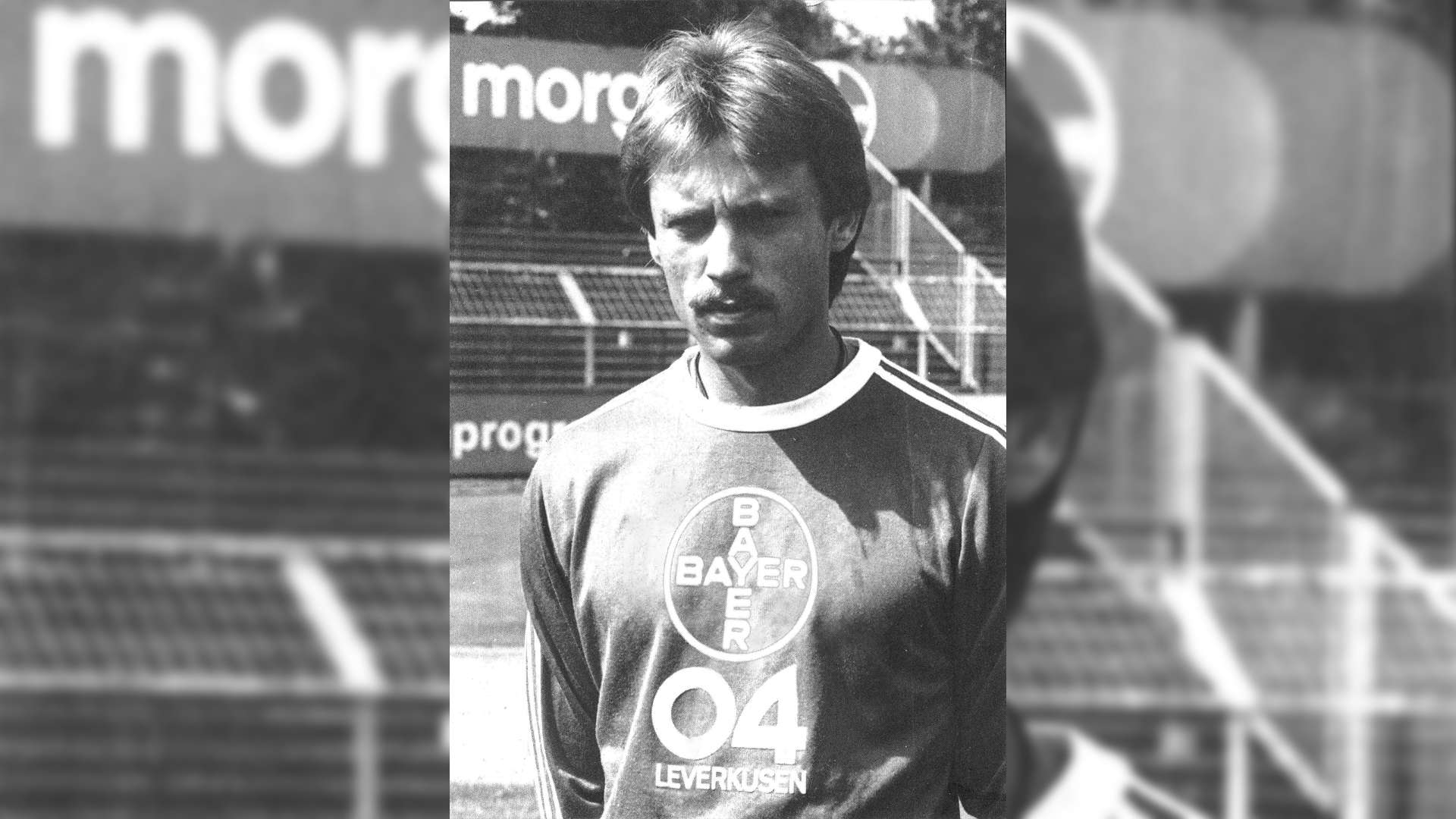
Bayer 04 make a brilliant start in high summer temperatures. The visitors are 2-0 up after 22 minutes with goals from Harry Gniech and Jürgen Gelsdorf. Full of running, committed and tactically disciplined from the start, the Bayer group dominate their opponents. And a quick reply from Fortuna does not put the team off. Substitute Matthias Brücken seals the win on 80 minutes to secure the first two points of the season.
The kicker headline reads, "How Leverkusen beat the millions team" and exposes the Bayer 04 secret. Bayer 04 have a well oiled team strengthened by the talented Peter Szech up front.
Coach Willibert Kremer and the team put the brakes on euphoria straightaway: "That doesn't make us champions."
However, this win whets the appetite for more as the next two matches are both at home at the Ulrich Haberland Stadium. And there are justifiable hopes to be at the top with two good results.
For all the nostalgic amongst us, here's the line-up from the first matchday in the promotion season of 1978/79: Bockholt – Posner, Gelsdorf, Klimke, Scheinert, Hörster, Bruckmann (Elfering 75’), Ziegler, Gniech (M. Brücken 65’), Szech, Herzog
Related News
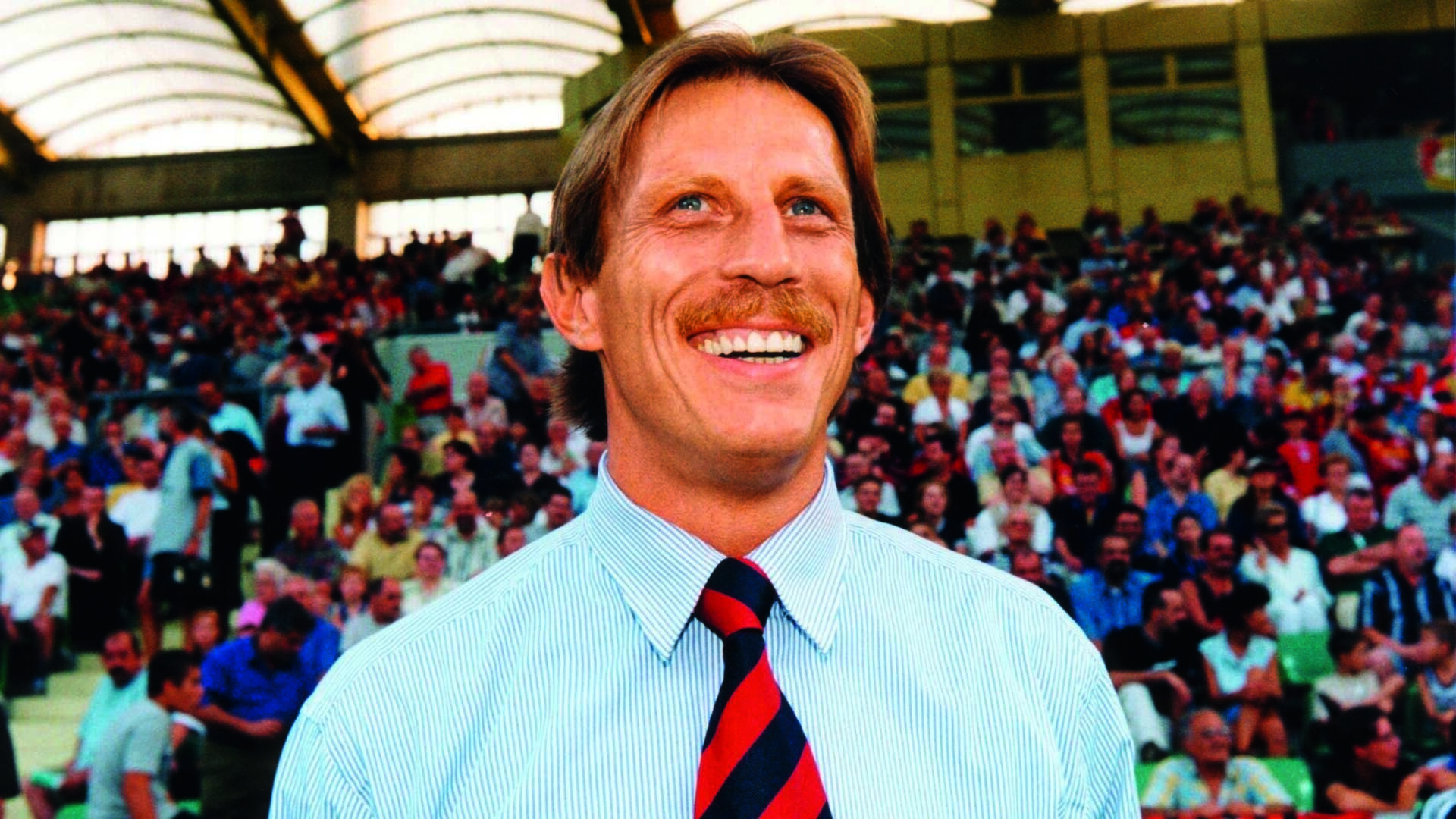
Legend: Christoph Daum - The man who taught us to want
Christoph Daum was born on 24 October 1953 in Zwickau. As a child, he moved to West Germany with his mother and grew up in Duisburg. He developed a great enthusiasm for football at an early age, even though it soon became clear that his future lay less on the pitch than on the sidelines. Even at a young age, his passion for analysing, explaining and improving things became apparent.
Show more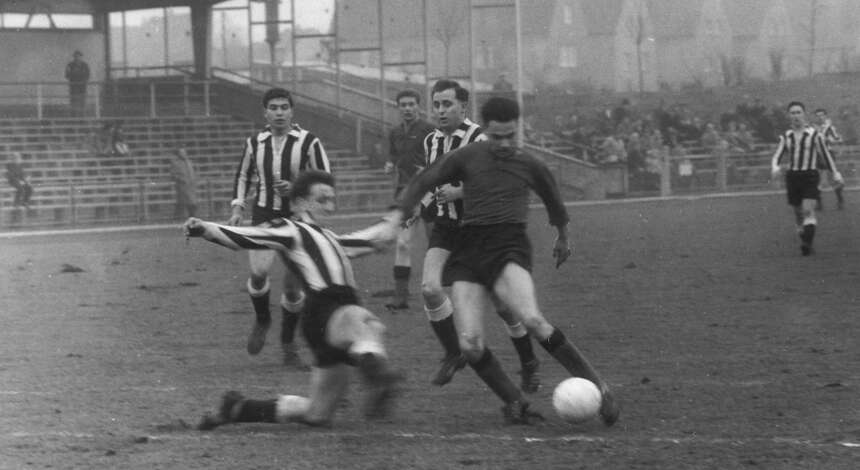
From the archives: 65 years ago - Another victory at last
When the Bayer 04 players celebrated Christmas in 1960, they spent the winter in second place in the Oberliga West 2 on 20 points - but already five points behind leaders Schwarz-Weiß Essen. However, coach Erich Garske's team are struggling to get back on track in the new year. A goalless draw against Bonner FV at home at the Ulrich Haberland Stadium was followed by a 2-1 away defeat in Erkenschwick. The following home game also yielded just one point. As a result, the team's promotion ambitions dwindled to a minimum, as the gap to the coveted spot has now grown to a challenging ten points.
Show more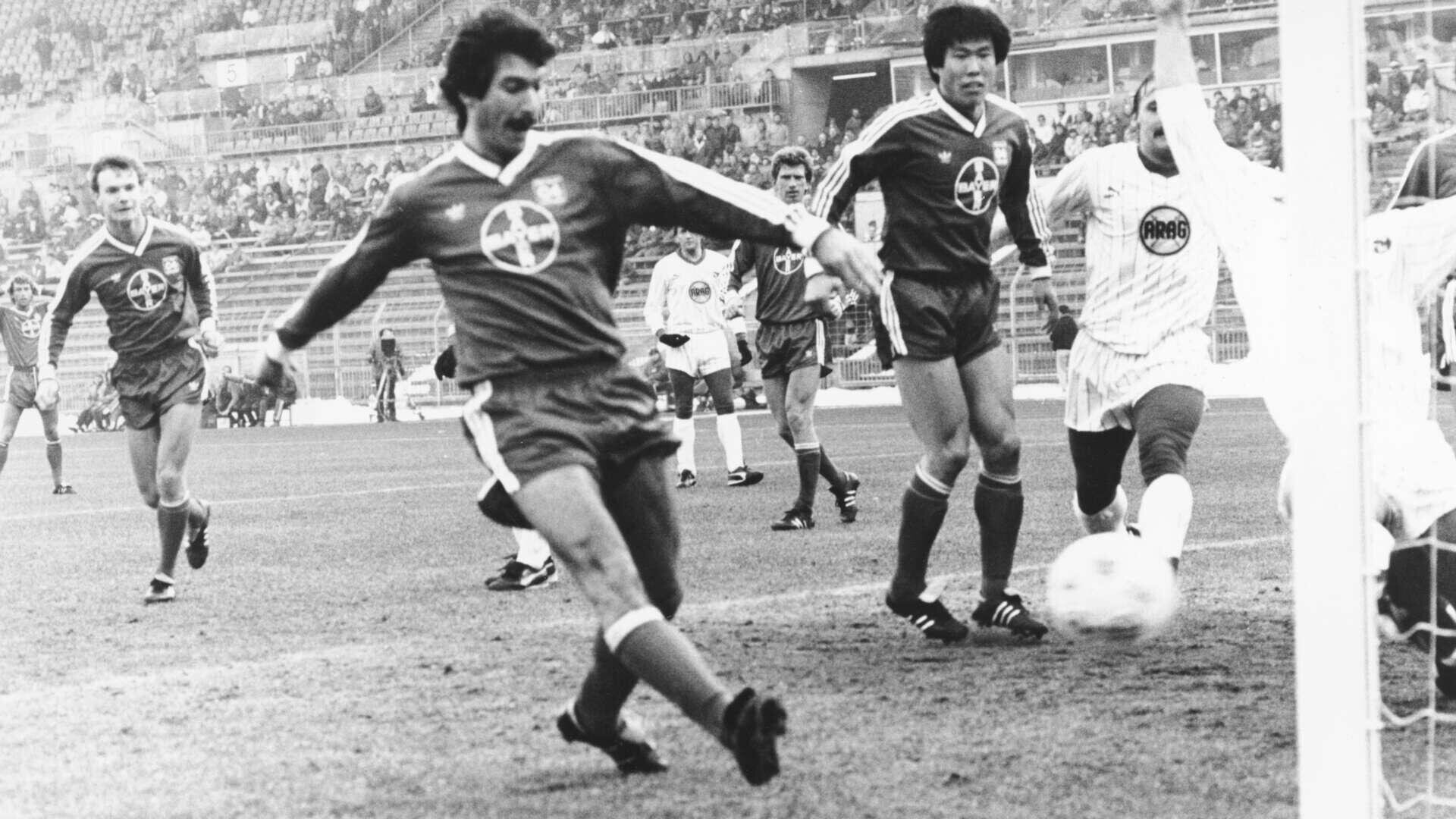
Goals of the month: From Waas to Tapsoba
In this video you can see impressive and important goals in Bayer 04 history from the month of February. It's not always about the beauty of the goals, but also a reminder of special games and players.
Show more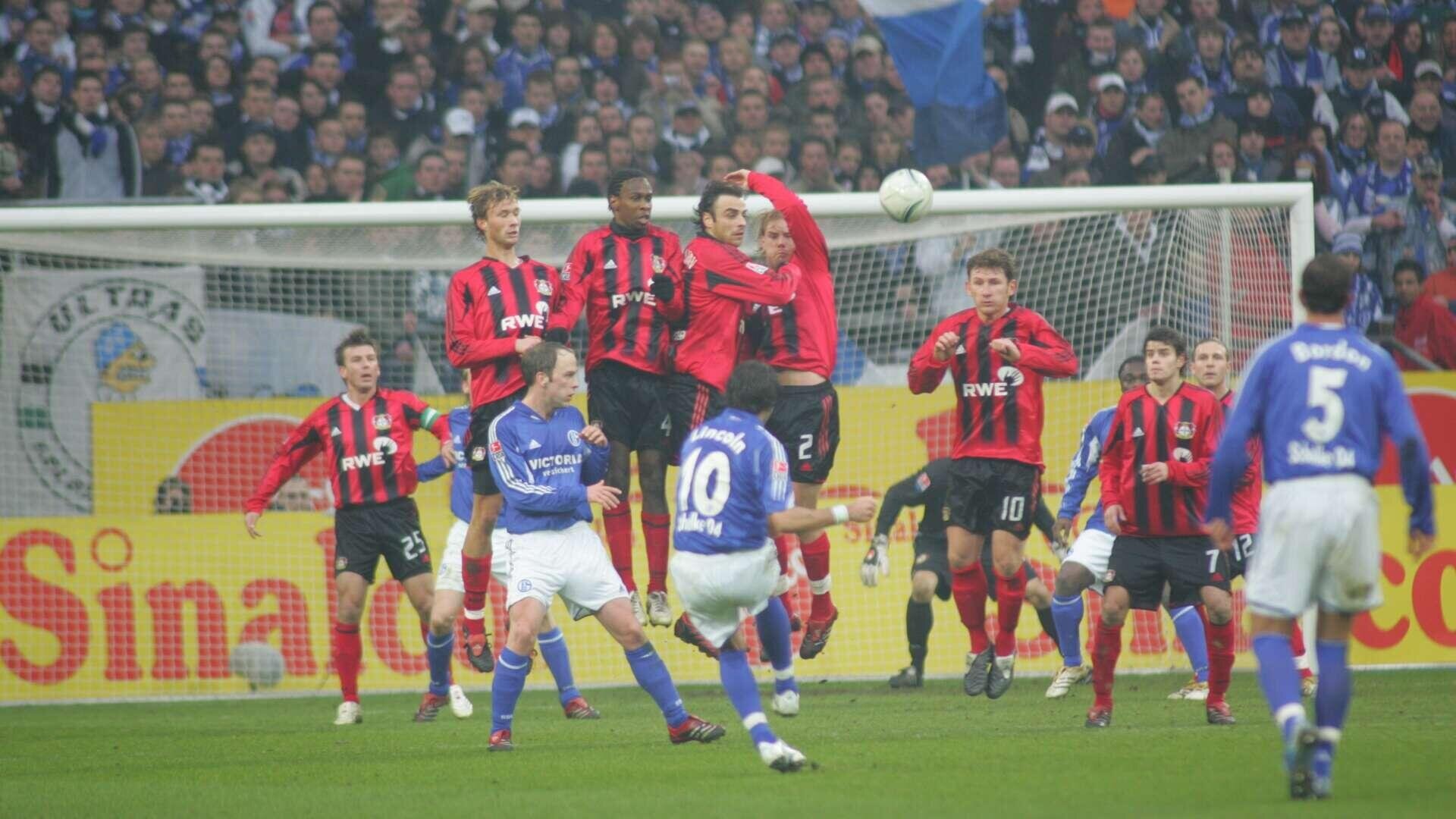
Match of the month: 20 years ago - A game of goals galore
It is 11 February 2006 and Schalke 04 and the Werkself kick off at 3.30 p.m. in a match that ends up being historic - at least from a Bayer 04 perspective.
Show more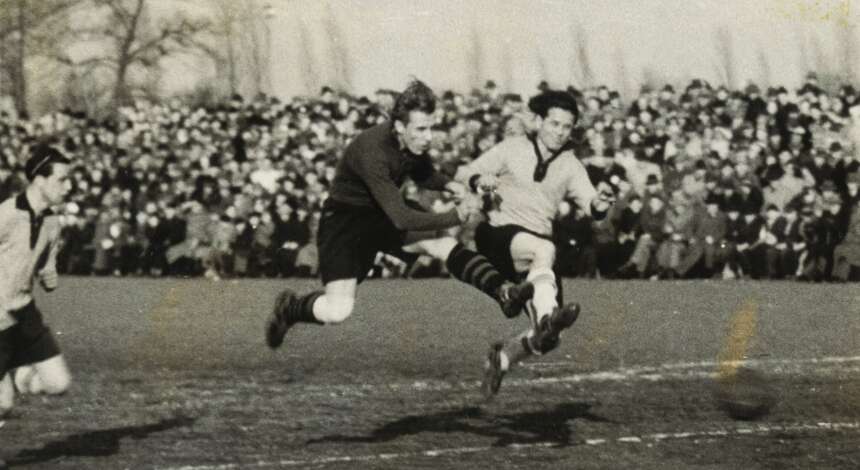
History: 75 years ago - The 1950/51 season (February)
As league leaders, the Werkself welcomed the relegation-threatened team from Rhenania Würselen. On 4 February 1951, 5,000 spectators line the touchlines despite the Sunday carnival parades. And they see a home team that is superior on the pitch. Without Theo Kirchberg, who was ill, and Emil Becks, who was suspended, the hosts attacked the opposing goal from the start. Battling against a strong wind in the first half, Bayer 04 created chance after chance, but were repeatedly thwarted by the Würselen goalkeeper. With the score at 0-0 at half-time, Karl Heinz Spikofski tried his luck on 55 minutes and hammered the ball into the opposition net from 20 metres out. Rhenania can no longer counterattack. The siege of the Würselen penalty area continued right to the end, but the game ended in a narrow 1-0 win.
Show more